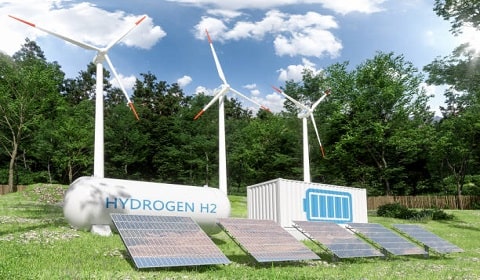
Green Hydrogen Development in Africa
Green hydrogen development in Africa marks a pivotal shift towards sustainable energy solutions on the continent. With initiatives like the green-hydrogen production project in Namibia’s Tsau Khaeb National Park, Africa is poised to become a significant player in the global green energy market.
This ambitious undertaking, backed by the Namibian government’s substantial investment, holds the promise of not only addressing energy poverty but also positioning Namibia as a key producer of low-cost green hydrogen. However, amidst the optimism lie critical questions regarding local value addition and environmental sustainability.
As Africa navigates this transition, adherence to global sustainability standards and inclusive governance will be paramount in ensuring that green hydrogen development truly serves African interests and propels the continent towards a more equitable and eco-friendly future.
Table of Contents
Green Hydrogen Development in Africa
Africa stands at a pivotal moment in its energy landscape, with the potential for green hydrogen development in Africa to revolutionize not only its power generation but also its economic prospects.
The recent agreement between the Namibian government and Hyphen Hydrogen Energy signals a significant step towards harnessing Africa’s renewable energy potential.
However, this venture also brings forth critical questions regarding sustainability, social inclusion, and economic equity.
1. The Promise of Green Hydrogen in Africa
The pact between Namibia and Hyphen Hydrogen Energy signifies a pivotal step towards advancing sustainable energy in Africa, particularly in the context of green hydrogen development in Africa. Expected to yield 350,000 metric tons of green hydrogen annually, this initiative holds the promise of establishing Namibia as a significant contributor to the global green hydrogen market.
Moreover, the venture is poised to generate numerous permanent jobs, highlighting the substantial socio-economic advantages for the region. This agreement not only bolsters Namibia’s position in the renewable energy landscape but also exemplifies the potential for collaborative efforts to drive sustainable development across the continent.
2. Addressing Africa’s Energy Challenges
Despite Africa’s vast natural resources, many Africans endure energy poverty due to limited access to electricity. Dependence on fossil fuels worsens environmental degradation. However, green hydrogen development in Africa emerges as a promising solution, providing a sustainable alternative. By investing in renewable energy, African nations can mitigate climate change while ensuring wider energy access.
Embracing green hydrogen offers an opportunity to leapfrog outdated energy systems, propelling the continent toward a more sustainable future. This shift not only addresses environmental concerns but also fosters economic growth and social development, empowering communities across Africa.
3. Ensuring Sustainable Development
The advancement of green hydrogen development in Africa offers great potential but must harmonize with sustainable development ideals. Adherence to the Sustainable Development Goals (SDGs) and the Paris Agreement is essential, emphasizing environmental preservation, societal inclusivity, and economic advancement. Central to this endeavor is the active engagement of local communities and the protection of human rights to foster fair and equitable outcomes.
Through this integrated approach, green hydrogen projects can effectively contribute to a more sustainable future, mitigating environmental degradation, promoting social cohesion, and fostering economic growth. By prioritizing these principles, the transition to green hydrogen can become a catalyst for positive change, aligning technological progress with the broader objectives of global sustainability.
4. Mitigating Risks and Challenges
The advancement of green hydrogen development in Africa holds promise but encounters hurdles. Challenges include land disputes, water shortages, and ecological harm. Furthermore, the specter of “green colonialism” looms large, threatening to deepen power differentials if foreign actors dominate.
To surmount these obstacles, African policymakers must prioritize transparent governance and foster inclusive decision-making. Such measures are crucial for steering the continent toward sustainable development and ensuring equitable participation in the burgeoning green hydrogen sector.
5. Leveraging Green Hydrogen for Local Development
The emergence of green hydrogen development in Africa offers African nations a chance for localized value addition and technology diffusion. Establishing resilient local value chains and emphasizing job generation can amplify the socio-economic advantages within these regions.
Strategic collaboration with global partners needs to be orchestrated in a manner that guarantees fair distribution of benefits and shared ownership. This approach not only fosters economic growth but also promotes sustainability and inclusivity, enhancing the long-term viability of green hydrogen initiatives across the continent.
6. Towards a Just Energy Transition
Africa’s shift towards a hydrogen-based economy necessitates a focus on equitable energy transition, placing the well-being of its populace at the forefront. Proactive strategies are vital to safeguard resources from exploitation and guarantee that the development of green hydrogen benefits local societies, including initiatives such as “Green Hydrogen Development in Africa”.
By adhering to principles of fairness, inclusivity, and environmental sustainability, Africa can position itself as a frontrunner in the worldwide transition to renewable energy. This journey entails not only technological advancements but also socio-economic considerations to ensure that the transition fosters prosperity for all communities across the continent. By prioritizing these values, Africa can pave the way for a future powered by clean, sustainable energy.
Bottom Line
The emergence of green hydrogen development in Africa presents a transformative opportunity to tackle the region’s energy deficits and foster socio-economic progress. Yet, unlocking its full potential necessitates strategic risk management, steadfast commitment to sustainability, and a focus on indigenous needs.
Embracing green hydrogen as a driver of constructive transformation, Africa can chart a path toward greater fairness and environmental stewardship. Through collaborative endeavors and responsible governance, the continent can harness this innovative energy source to fuel inclusive growth and mitigate climate challenges, ultimately shaping a more equitable and sustainable trajectory for its people and the planet.







